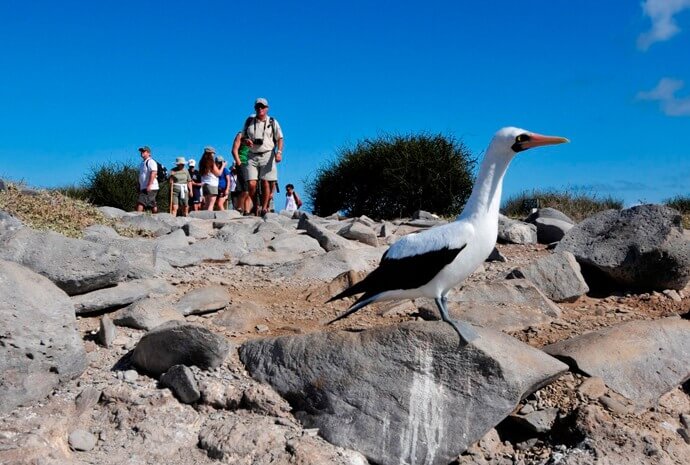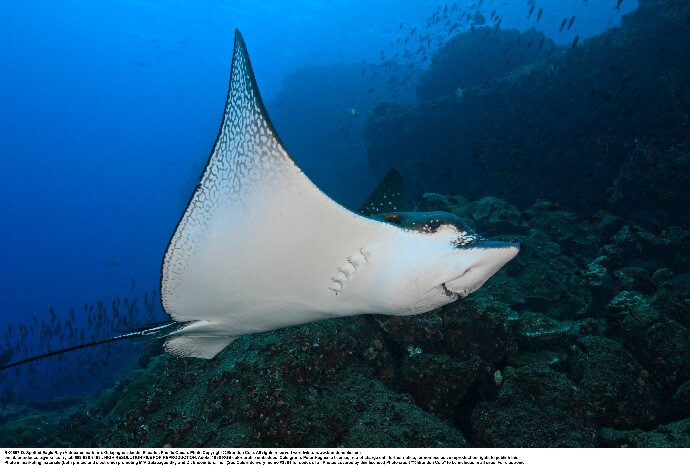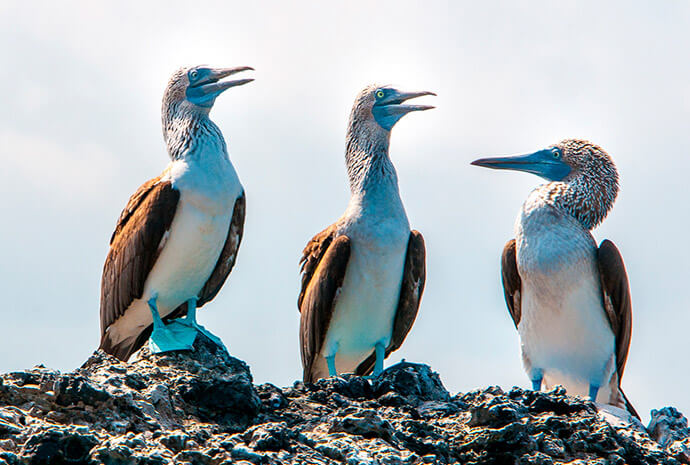
Diving
Galapagos Diving
Diving in the Galapagos is some of the most rewarding in the world with an amazing diversity of fish, reptiles, mammals and corals to be seen. See section on Marine Life for list of species which can be seen.
Visitors can either take day trips from land accommodation on one of the main islands or sail on a live-aboard boat to a variety of dive locations. It must be noted that when travelling on a live-aboard boat, visitors are not permitted to land on any of the islands to view land wildlife.
Experienced divemasters will give advice on each of these aspects to ensure safety and the best experiences.
Divers can bring their own equipment or it can be rented in Puerto Ayora (Santa Cruz) or San Cristobel. Dive belt and weights are normally available on board boats.
View Trips Enquire
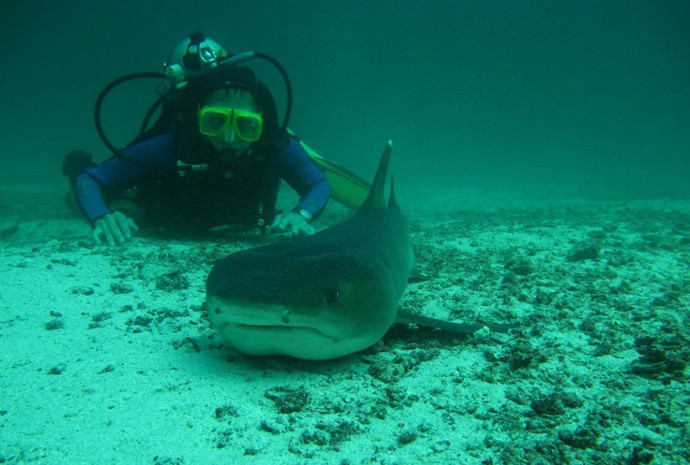
WILDFOOT Wildlife & Adventure Specialist
Lines are open from 9am -5.30pm
Monday - Friday

Amy Lucas
Senior Travel Expert
Dive Conditions and Equipment
Currents and surges are often encountered in the waters around the islands and divers must be prepared for these. It is essential to wear proper gloves in case of contact with sharp rocks or coral. Waters are also often surprisingly cold because of the influence of the Humboldt Current. Thicker wetsuits and hoods are therefore advisable. Thicker suits also affect buoyancy, so weight checks are also essential.
Galapagos dive guides: Expert dive Instructors and a dive masters are also naturalist guides certified by the Galapagos National Park Service. The guides are qualified divers with essential knowledge of specific diving locations with their respective interest and dangers.
Dive equipment: Divers are required to bring their own dive equipment, including: Mask, fins and snorkel, regulator, depth and pressure gauges, bottom timer or dive watch. Buoyancy compensator device (BCD), Dry suit or thick wet suit (1/4” or 5-7mm), hood and gloves,. Optional items: Underwater camera, video camera, dive computer.
Safety Equipment: Please check with us as this list may vary depending on the vessel and what’s available on board.
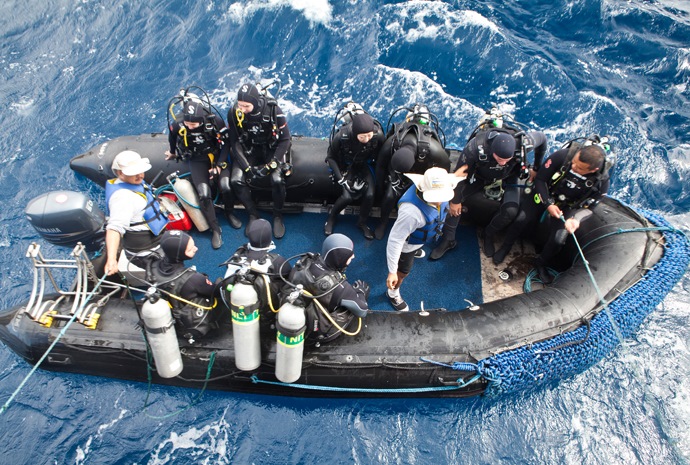
WILDFOOT Wildlife & Adventure Latest Deals
Late deals come in regularly, so be sure to check out our latest deals
General Information
Important: Don’t forget your “Open water diving certification.
Manta Season - December to May
Whale Shark Season - June to November
Diving with Hammerhead Sharks – All year around the islands of Wolf and Darwin.
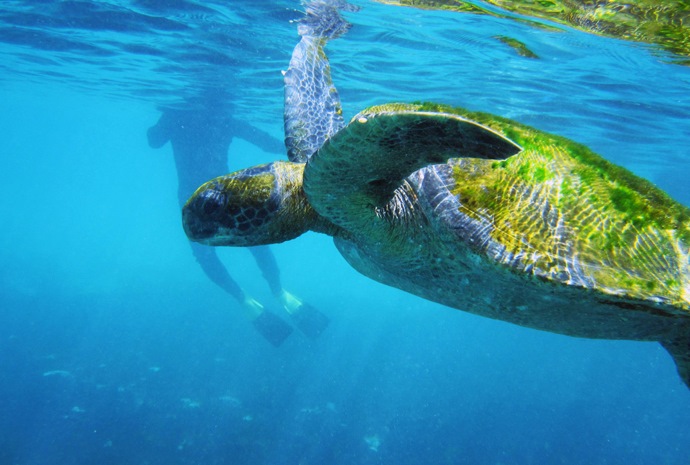
Members of The Adventure Travel Trade Association
WILDFOOT are proud to be members of ATTA. The ATTA community put effort towards nurturing, protecting and professionalizing the sustainable development of the adventure travel industry.
